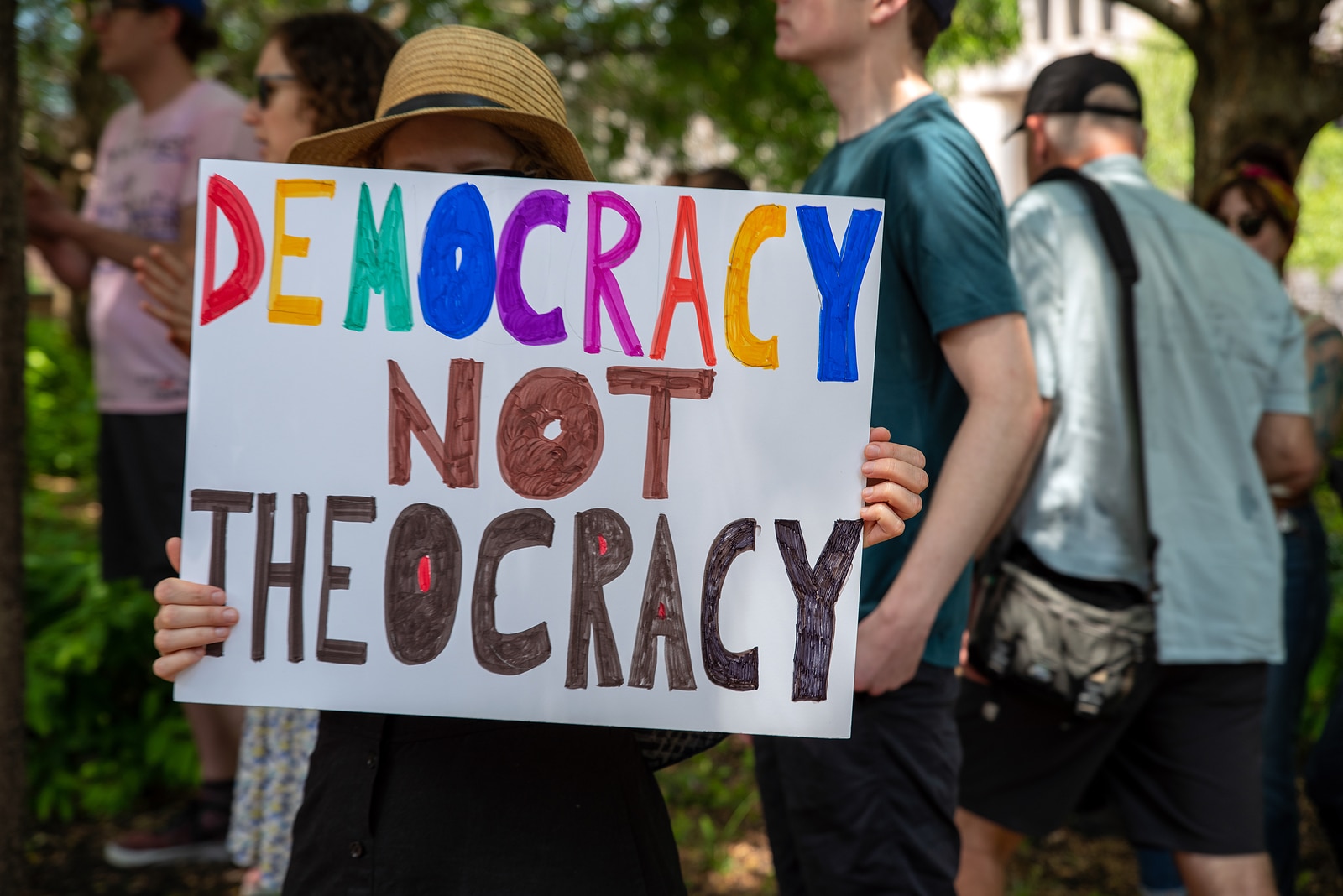Grounded in Faith: The Right To Choose

For many states, this election was a referendum on a woman’s right to choose. Whether abortion access was on the ballot explicitly, or indirectly through the candidates, many voters had to make a decision: should women have access to the life-saving service, or should that decision be left up to old, white men. Many voters chose the latter option, but it was disguised as voting their “conscience” or their “values.” For millennia, those values have relegated women to a second-class existence with the justification being the Bible.
Christianity can be hard on women, especially when examining sacred text literally. First, there’s Eve who is punished for disobedience and for leading Adam astray. She gets them both kicked out of the Garden of Eden. Then she gets the personal punishment of labor pain. This punishment is not only for her, but for everyone after her who gives birth. From this literal interpretation, the experience of pain during childbirth is a punishment, as is a second-class citizenship of women.
“I will greatly increase your pain in childbearing; in pain you shall bring forth children; and yet your desire shall be for your husband and he shall rule over you.” (Genesis 3:16 New American Standard Bible)
Then there’s Mary, a 14-year-old who is engaged to be married and becomes pregnant under mysterious circumstances. I understand that the context of a pregnant 14-year-old was different than now, but by removing full access to reproductive care, we are also legislating the fates of 14-year-old middle schoolers.
These are only two examples of women in the Christian Bible around pregnancy and childbirth. It is the backdrop for recent legislation limiting healthcare access for those who are pregnant in a culture and time far different than today. It puts lives at risk and forces people to continue pregnancies, regardless of the circumstances or risks. With this literalist thinking, a contemporary 14-year-old can give birth because of who that child may become. An adult can give birth, regardless of the health risk, because the process is a punishment, anyway.
According to election results, voters in most of the states that had abortion access on the ballot were clear that government needs to stay out of this very personal and very medical decision. Kentucky, Michigan, Vermont, California and Montana rejected measures to interfere with bodily autonomy and the right to choose.
But what of those who are faithful and support the right to choose? How can this be grounded in faith? It is possible to understand that the Christian sacred text is a product of the time in which it was written. Many factors of modern living, such as technology and aspects of healthcare, are not addressed because they didn’t exist. Are we to ignore live-saving healthcare because it did not exist 2,000 years ago?
There have been calls from conservative politicians to do away with the separation of church and state, to implement a theocracy based on Christianity. Putting aside the fact that not everyone or everyone of faith is Christian, whose Christianity should we enact? Baptists, which comprise the largest Protestant denomination, have over 60 different varieties, each with specific beliefs and expressions of faith. There are Catholics and Protestants with marked differences.
The calls within sacred text for compassion and justice are nonpartisan and nonsectarian. These can be guiding principles. What is the compassionate response to the pregnant middle schooler or the adult whose pregnancy puts their life at risk? What is justice for someone who is pregnant after being raped or someone who cannot afford another mouth to feed? What if pregnancy and childbirth were not punishments, but calls for compassion and justice? And who can dare come between a person and their God to lord their interpretation of sacred scripture over another human? How can we attest “freedom of religion” while using religion to accost one’s freedom to make choices over their own bodies.
The God I serve is not forceful. My God is gentle and permissive. The God I serve has always been clear that my life is a series of my choices. The God I serve, who centers love, would not overlook my freedom of choice and my heartache in often-tough decisions to allow a government of men to force their ideology on me. The apostle Paul writes that women should be silent and should not hold leadership roles over men. But this is not the reality of modern life. Women and those who bear children cannot be silent. There’s too much at stake. Harlem Renaissance author Zora Neale Hurston addressed this need to be seen and heard when she said, “If you are silent about your pain, they will kill you and say you enjoyed it.”
Malawian-American economic justice advocate Josephine Kalipeni is executive director of Family Values @ Work, a movement network working to win paid family and medical leave, earned sick and safe days, and affordable, high-quality childcare.